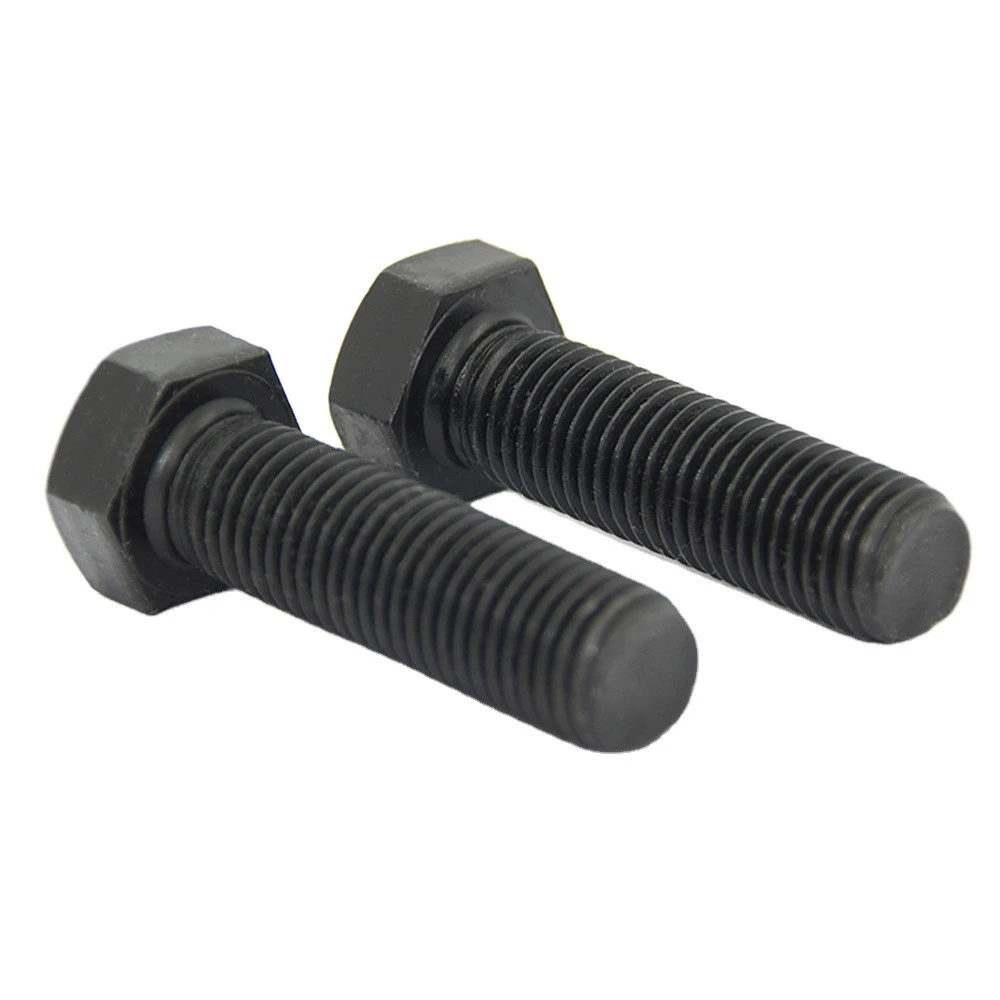buy b7 bolts
Nov . 11, 2024 08:23 Back to list
buy b7 bolts
Understanding the Importance of Buying B7 Bolts
When it comes to construction and industrial applications, the choice of fasteners is critical to the integrity and safety of structures and machinery. Among the myriad of options available, B7 bolts stand out for their exceptional strength and durability. In this article, we will explore the significance of B7 bolts, their applications, and essential considerations when purchasing them.
What are B7 Bolts?
B7 bolts are a type of high-strength steel bolt made from a specific grade of steel alloy. They are classified under ASTM A193, which sets the standards for certain alloy and stainless-steel bolting materials for high-temperature or high-pressure service. The B7 designation indicates that the bolt has a minimum yield strength of 105 ksi (kilopound per square inch), making them ideal for demanding applications.
These bolts are often heat-treated to enhance their strength and resistance to wear, providing a reliable fastening solution for various industries, including oil and gas, power generation, and chemical processing. B7 bolts can also handle extreme temperatures and various environmental conditions, making them a go-to choice for many engineers and contractors.
Applications of B7 Bolts
B7 bolts are commonly used in environments where high tension and pressure are present. Here are some typical applications
1. Oil and Gas Industry B7 bolts are frequently utilized in pipelines, pressure vessels, and flanges. Their strength ensures the integrity of the system, which is crucial in preventing leaks and maintaining safety standards.
2. Power Plants These bolts are essential in assembling turbines and other high-pressure equipment. The reliable fastening provided by B7 bolts contributes to the operational efficiency and longevity of the machinery.
3. Chemical Processing In environments that handle corrosive materials, B7 bolts are favored for their ability to withstand chemical attacks, ensuring that industrial systems remain intact.
4. Construction and Infrastructure B7 bolts are used in bolted joints in bridges, buildings, and other structural components where safety and durability are paramount.
buy b7 bolts

Factors to Consider When Buying B7 Bolts
When purchasing B7 bolts, several factors should be taken into account to ensure you get the right product for your needs
1. Material Certification Always ensure that the bolts come with mill certification documents that verify they meet ASTM A193 B7 specifications. This guarantees that the bolts possess the required mechanical properties.
2. Thread Type B7 bolts come in various thread types, including coarse and fine threads. Choosing the right thread type is essential for the application and installation method.
3. Coating and Finish Depending on the environment, you may need B7 bolts with specific coatings to prevent corrosion. Options include hot-dip galvanizing, zinc plating, or specialized coatings for high-temperature applications.
4. Size and Length It is vital to select the appropriate size and length of the bolt according to the project's specifications. Referencing industry standards or consulting with an engineer can help determine the optimal dimensions.
5. Supplier Reputation Always purchase from reputable suppliers who specialize in high-strength fasteners. A trusted source is more likely to provide quality products and reliable customer support.
6. Pricing While it might be tempting to choose the cheapest option, consider the long-term implications of quality and performance. Investing in high-quality B7 bolts can save costs associated with failures or replacements down the line.
Conclusion
In the world of industrial applications, the importance of using the right fasteners cannot be overstated. B7 bolts offer strength, durability, and resistance to harsh environments, making them an optimal choice for various demanding applications. When buying B7 bolts, consider factors such as certification, thread type, coatings, size, supplier reputation, and pricing to ensure you make an informed choice. By prioritizing quality and reliability, you can enhance the safety and longevity of your projects, ultimately contributing to operational success.
Latest news
-
High-Quality Panel Stud Bolt Reliable Panel Stud Bolt Factory & Suppliers
NewsJul.08,2025
-
High-Precision Fine Thread Locknuts Manufacturer & Supplier Custom Solutions
NewsJul.08,2025
-
PH Imperial Stud Bolt – High Strength Fasteners from Leading Supplier & Factory
NewsJul.07,2025
-
High-Quality Allen Wrench Bolts Leading Factory, Company & Suppliers
NewsJul.07,2025
-
Wholesale Ball Stud Bolt - High Quality Supplier & Factory Price Reliable Wholesale Ball Stud Bolt Company
NewsJul.06,2025
-
High-Strength Alloy Bolts Manufacturer & Supplier Quality Alloy Fasteners Factory
NewsJul.06,2025
